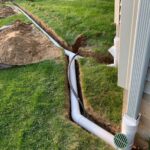Commercial property insurance is a must for any business owner, but it can be confusing to understand all the different coverage options available. In this blog post, we’ll break down everything you need to know about commercial property insurance, from what it covers to how much it costs. You’ll be an expert on commercial property insurance in no time!
Introduction to commercial property insurance?
Commercial property insurance is an essential way for businesses to protect their investments from unforeseen circumstances. From accidental damages and losses to natural disasters, this type of insurance covers a variety of risks as it provides financial protection against many kinds of losses. Depending on the policy, commercial property insurance can cover items such as buildings, equipment and furniture inside the building, loss of income due to a business interruption and much more. Investing in commercial property insurance ensures that a business’s finances are safeguarded against expected or unexpected catastrophes.
Who needs commercial property insurance and why?
Commercial property insurance is important for a variety of businesses, from small start-ups to large corporations. It protects the physical assets of business against a wide range of risks such as fire and water damage, theft and vandalism. Having this insurance ensures business owners can protect themselves financially should any of these risks occur. In addition, commercial property insurance provides coverage in case customers or staff members suffer any injuries on the property; ultimately protecting against potential lawsuits and financial burdens if legal action was taken. Therefore, no matter what size or scope of business, commercial property insurance is invaluable.
How much does commercial property insurance cost and how can you save money on it?
When purchasing commercial property insurance, the cost depends heavily on the type and amount of coverage needed. While it might be tempting to opt for the least expensive option, it’s important to make sure you and your business are adequately protected in the event of an emergency. There are several ways to save money on commercial property insurance without skimping on coverage. Reviewing your policy regularly for potential discounts and shopping around for quotes from multiple providers can help lower costs by finding new discounts or better terms. Additionally, taking steps to reduce risks at your business such as installing a security system could qualify you for additional discounts or reduced premiums.
Exclusions in commercial property insurance policies
Commercial property insurance policies typically exclude many of the perils that a business may face. These can include damage from floods, earthquakes, and certain types of construction work performed by the customer or their contractors. Other common exclusions are for items lost through criminal activities such as theft and vandalism, intentional acts perpetrated by the business owner or their employees, and losses originating from defective materials used in the construction of a building. In addition, some policies will not cover damage caused by war, civil commotion, or terrorism. The best way to ensure that adequate protection is provided is to read the policy thoroughly and contact your insurance company if you have any questions about which risks are covered.
Conclusion
Commercial property insurance is vital protection for any business that owns its own building or other types of physical property. This type of insurance can cover a wide range of perils, from fires and theft to vandalism and severe weather damage. It’s important to understand what commercial property insurance does and does not cover so that you can make sure your business is properly protected. The cost of this coverage will vary depending on the value of your property and the level of risk in your area, but there are ways to save money on commercial property insurance. By taking some steps to prevent losses, such as installing security cameras or alarm systems, you can lower your premiums. If you experience a covered loss, be sure to document the damages carefully and file a claim promptly with your insurer.
















